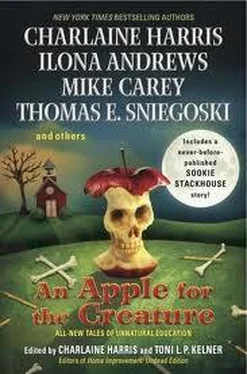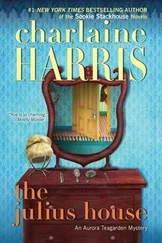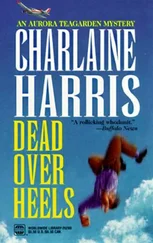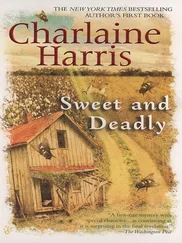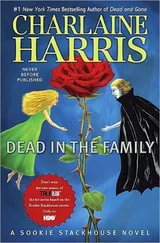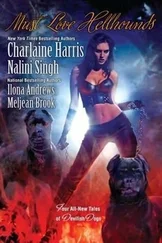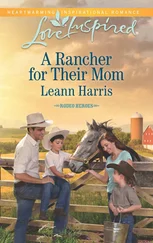“Hello?” I said into my phone. “Is that Pirate Dave, the hottest vampire to ever sail the seven seas?”
“Arrrr!” he growled in reply, which was a lot sexier than you might think. Or maybe growls are just more appealing to werewolves.
We indulged in a few moments of witty banter, then David said, “Not that I’m not delighted to hear your voice, Joyce, but I thought the full-moon run was tonight.”
“I went out for a while but the weather isn’t that great.” Before he could remember that the chance to run with other werewolves had been the part of the seminar I’d most been looking forward to, I said, “Have you looked over that list of ideas for the park?”
Our home and business was Pirate Dave’s Adventure Cove, an amusement park in Bartholomew Lake, New Hampshire. I adored the place, but it needed major updating to bring in more business. With the park closed for the winter, David and I had had plenty of time to discuss options. Unfortunately, those discussions could be awfully loud—fortunately, the makeup sex was worth it.
“I’m not docking the Brazen Mermaid ,” he said flatly.
“Look at the numbers. When you add up insurance, maintenance, and operation costs, and compare that to how many guests actually ride—”
“How can we have a Pirate Dave without a Brazen Mermaid ? It’s the park centerpiece. It’s on our logo!”
I sighed. “Fine. But check out my other ideas, okay?”
“I will. Tell me, how have you been getting along with the other wolves?”
“Good. Great. Making lots of friends. And today I found out how I became a werewolf.”
“Didn’t we already know that? You were bitten.”
“Yes, but it turns out that only people with were blood can Change after being bitten. Vanilla humans aren’t affected. Well, other than blood loss, scarring, and a newfound fear of canines, of course. But if the bitee has enough werewolf in the family tree, his or her body will try to Change at the next full moon.” I didn’t mention what happened if the person didn’t have enough were blood—the slideshow had been pretty gruesome.
“Then you have werewolf kin?”
“I guess so. I should find out where it came from.” My parents were dead, but there was a family Bible and other records.
David paused just long enough to be significant before asking, “Would finding your ancestry link you to a pack?”
“God, no! I’m still footloose and fancy-free.”
“Ahem.”
“From the werewolf perspective, that is. No pack affiliation.”
“And nobody has been bothering you about that?”
“No, they’re all on their best behavior. With representatives from so many packs, they kind of have to be. Anyway, I haven’t had a problem with a single wolf.”
“You’re sure?”
“Absolutely. But I need to get going. There’s going to be a midnight buffet—”
“It’s only eight.”
“But sometimes they run out of food.” With werewolf metabolisms, especially when said werewolves had been on a run, that was definitely a possibility.
We exchanged mushy words, then I hung up with only the slightest twinge of guilt. I hadn’t exactly lied to David—the other werewolves really had started out friendly. It was the ghost of Captain Bob who didn’t like me, and it was only a matter of time before he found my cabin so he could haunt me some more.
—
The week had started out well, despite my initial qualms. Though I’d been a werewolf less than a year, I was already making waves in the Lupine-American community: I’d survived a bite, which was unusual; I’d refused to affiliate with a pack, which was unheard of; and I was living in glorious sin with a vampire, which was appalling. Given that, it hadn’t been easy to meet other werewolves.
And as much as I loved my red-hot, red-headed lover, I did occasionally want somebody else to talk to. Sure, I had human buds back in Boston, but there were so many things I couldn’t discuss with them that it was hard to keep a real relationship going. Plus I’d nearly starved when I tried to go out to brunch with some girlfriends—even at an all-you-can-eat place, they’d eaten next to nothing.
So when I got the letter inviting me to the Talbot Seminar, I didn’t hesitate. The annual weeklong event was sponsored by the Pack Council to help interpack relations and share what they called “wolfen wisdom,” so all packs were asked to send representatives. It had been decided that I was a pack of one, so I was representing myself. The politics didn’t interest me. What did was the chance to meet other werewolves, go on runs, eat without worrying about how my appetite looked to normals, and learn more about the supernatural world in which I’d found myself. Plus it was only a two-hour drive away, in Pine Tree, Vermont.
The venue was the Cahill Resort, an isolated, werewolf-owned operation. There was a big main building that held all the public spaces, and guest cabins nestled in the woods. The decor was big on logs and faux rustic accents. I had a cabin to myself, but didn’t plan to spend much time in it. I’d come to socialize. And at first, the seminar was everything I’d hoped it would be.
Sure, there was some curiosity from the other wolves, but it wasn’t overly rude. I didn’t mind talking about David, and when I pointed out the advantages of dating a man who’d spent centuries perfecting his techniques, some of the other wolves looked intrigued.
With that out of the way, we wolves compared notes, gossiped, and ate massive amounts openly. It was great. At least it was until the second day, when Dr. Angie Hogencamp took the stage in the auditorium.
Her program bio described her as a supernatural researcher, though I didn’t know if that meant she researched supernatural creatures, conducted research by supernatural means, or both. The first presentation was the aforementioned discussion on why some biting victims became werewolves and some didn’t, which was interesting, and the nasty slideshow didn’t stop us from enjoying a hefty mid-morning snack.
Then Dr. Hogencamp took the stage again for the second session. “We have a very special guest today. Captain Robert Antonelli, a former ferryboat captain from my hometown, is going to talk about his experiences.”
She stepped back from the podium and waved her hand, inviting the speaker to come forward. At first I thought the man had walked through an entrance in the back wall I hadn’t seen, but no, he’d walked through the wall. In fact, I could see the wall through him—he was translucent.
“Jesus,” I heard somebody behind me say. “It’s a ghost.”
I tried to look blasé, as if I encountered ghosts all the time, but the fact was I hadn’t even known there were ghosts. I was too new to the werewolf world to know which other supernatural denizens actually existed.
The ghost was tall, though hunched with age, with a weatherworn face and a bit of a potbelly. Though the nautical cap on his scraggly gray hair could have been from any age, his khakis and polo shirt were modern, so I guessed he hadn’t been dead that long.
“You can call me Captain Bob,” the ghost said, his voice surprisingly normal. He surveyed us as if looking over a particularly unimpressive batch of naval recruits. “The doc here invited me to come tell you what it means to be a dead man walking. Or floating.” He slowly lifted from the floor until the tips of his deck shoes were at the height of the microphone.
When he was satisfied he’d caused enough of a stir, he settled back down again on the floor of the platform and went on to describe his life after death, or maybe instead of death.
Ghostly abilities were pretty much as advertised: floating, walking through walls, making unearthly noises, appearing and disappearing. Some ghosts were big on haunting, ranging from being tied to a location but able to interact with people to just replaying a moment in time. Captain Bob seemed disdainful of what he called anchored spirits—he said he went wherever he wanted and could even appear however he wanted, as long as it was a look he’d had in life. He demonstrated by changing shirts and pants. On the other side of the spectrum, he seemed embarrassed to admit that he couldn’t affect the physical world the way some ghosts could—I had a hunch he would have enjoyed playing poltergeist-y tricks.
Читать дальше
